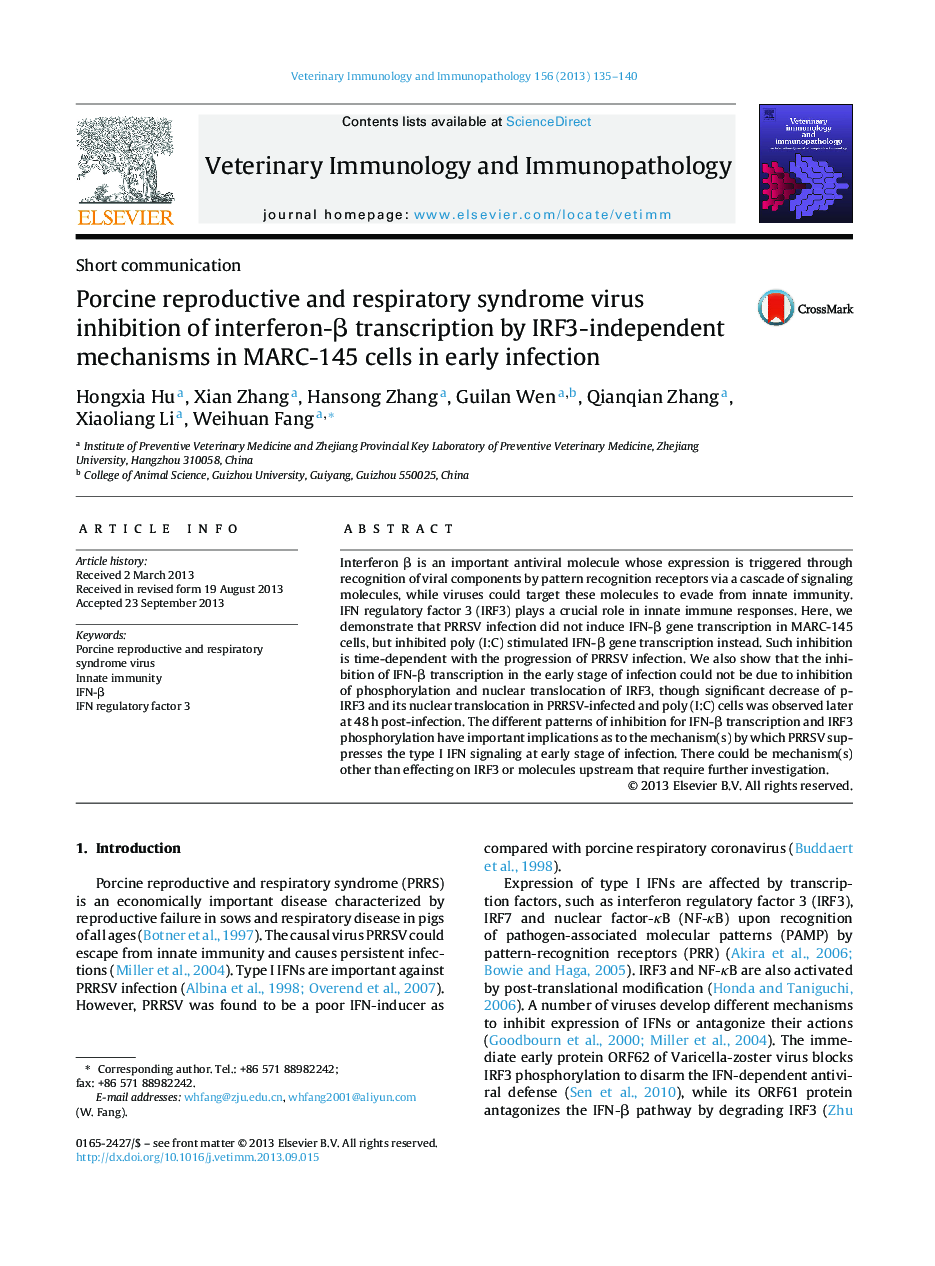| Article ID | Journal | Published Year | Pages | File Type |
|---|---|---|---|---|
| 2461581 | Veterinary Immunology and Immunopathology | 2013 | 6 Pages |
Interferon β is an important antiviral molecule whose expression is triggered through recognition of viral components by pattern recognition receptors via a cascade of signaling molecules, while viruses could target these molecules to evade from innate immunity. IFN regulatory factor 3 (IRF3) plays a crucial role in innate immune responses. Here, we demonstrate that PRRSV infection did not induce IFN-β gene transcription in MARC-145 cells, but inhibited poly (I:C) stimulated IFN-β gene transcription instead. Such inhibition is time-dependent with the progression of PRRSV infection. We also show that the inhibition of IFN-β transcription in the early stage of infection could not be due to inhibition of phosphorylation and nuclear translocation of IRF3, though significant decrease of p-IRF3 and its nuclear translocation in PRRSV-infected and poly (I:C) cells was observed later at 48 h post-infection. The different patterns of inhibition for IFN-β transcription and IRF3 phosphorylation have important implications as to the mechanism(s) by which PRRSV suppresses the type I IFN signaling at early stage of infection. There could be mechanism(s) other than effecting on IRF3 or molecules upstream that require further investigation.
